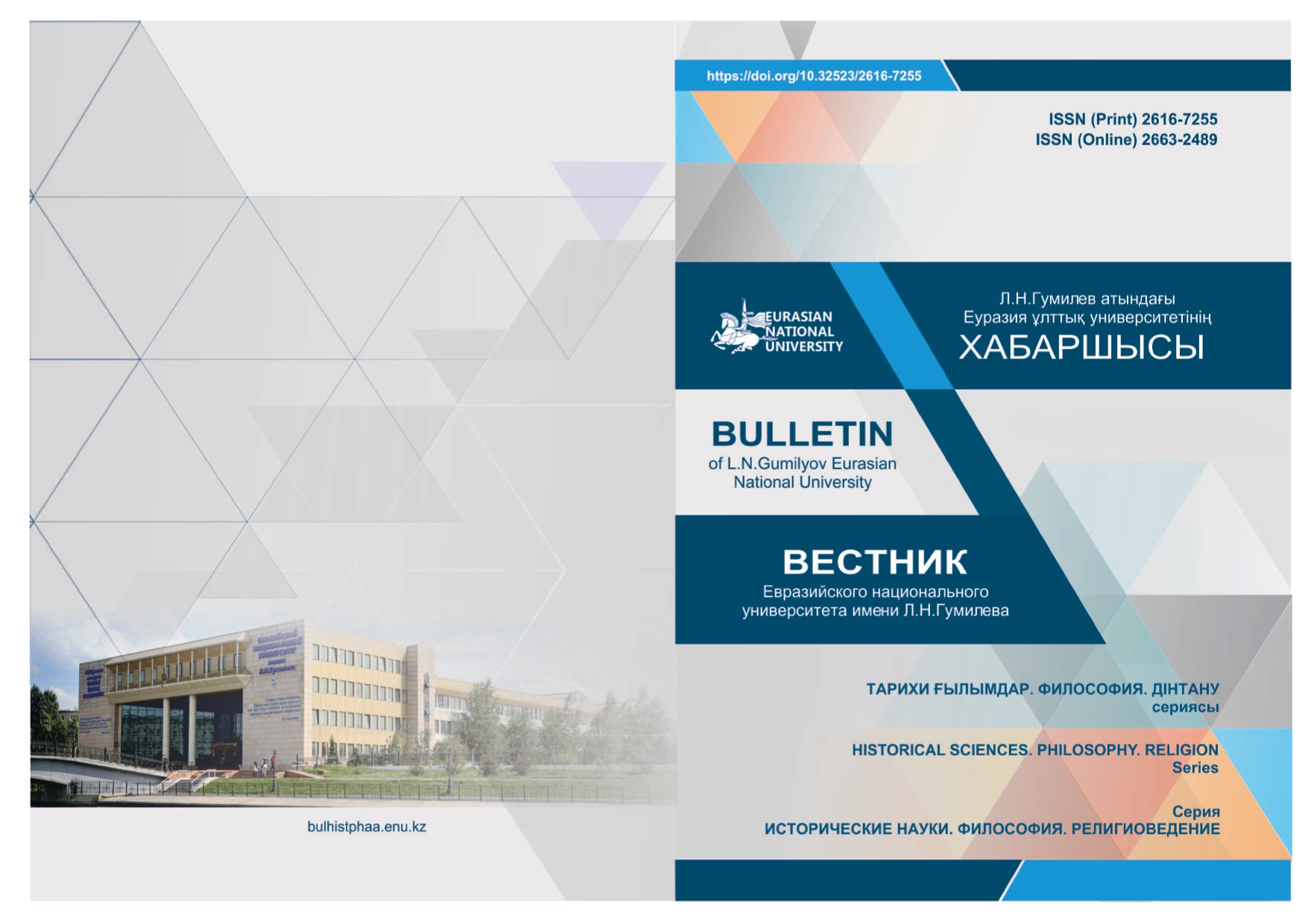Hybridization of museum practices: state and confessional experiments in mosques of Kazakhstan
Views: 238 / PDF downloads: 255
DOI:
https://doi.org/10.32523/2616-7255-2023-142-1-252-264Keywords:
Islam; mosque; cultural heritage; museum; post-Soviet; secular; religious; hybridization; participation; Spiritual Administration of Muslims of Kazakhstan.Abstract
The article analyzes the cases of organizing the activities of Islamic museums in regional mosques, which appeared as a result of the participation of state power, branches of the Spiritual Administration of Muslims of Kazakhstan and other stakeholders. The author posits that the Rukhaniyat Museum located at the Nur-Gasyr Mosque in the Aktobe region, and the Museum of Islamic Culture situated at the Khalifa Altai Mosque in the East Kazakhstan region, represent the initial undertakings towards a comprehensive implementation of Soviet museum methodologies to showcase the suppressed pre-Soviet Islamic legacy. The emergence of hybrid forms of coexistence between the museum and mosque has made it challenging for researchers to categorize these institutions using existing museum classifications in Kazakhstan. One of the museums is run by a government body, while the other is managed by a branch of the country's primary Islamic institution. This distinction is evident in the way each museum presents its exhibits and communicates with the local community. In general, it is argued that a hybridization of museum practices is taking place, and mosques are becoming a place of compromise for all stakeholders to showcase Islamic heritage in secular Kazakhstan. Both the state power and religious institutions are demonstrating their own approaches to representation within this context.
Downloads

Downloads
Published
How to Cite
Issue
Section
License
Copyright (c) 2023 Bulletin of L.N. Gumilyov Eurasian National University. Historical Sciences. Philosophy. Religious studies series.

This work is licensed under a Creative Commons Attribution-NonCommercial 4.0 International License.







